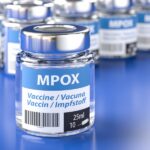Nigeria is confronting a growing cancer emergency, with an estimated 127,000 new cases and 80,000 deaths reported annually, according to the Coordinating Minister of Health and Social Welfare, Professor Muhammad Pate.
Speaking at the commissioning of a new oncology facility at the Federal Teaching Hospital, Katsina, Prof. Pate described cancer and other non-communicable diseases as rapidly rising threats to public health, imposing both physical and financial strain on Nigerian families.
“Cancer is now one of the leading health challenges we face. It causes not only pain and suffering, but also a heavy economic burden on patients and their families,” Pate stated.
“Under the Renewed Hope Agenda of President Bola Tinubu, the Federal Government is committed to expanding access to cancer treatment across all six geopolitical zones.”
Medical professionals say the alarming figures may still be underestimations, as previously undiagnosed cases are now being uncovered due to improvements in diagnostic tools and reporting systems.
Dr. Adamu Umar, Chairman of the Oncology and Cancer Care Committee of the Nigerian Medical Association, explained that improved surveillance is gradually exposing the true extent of Nigeria’s cancer burden.
“We are witnessing a rise in reported cancer cases—not necessarily because more people are falling ill, but because we now have better systems to detect the disease,” said Dr. Umar.
“For every diagnosed case, there may be hundreds that remain undetected due to lack of awareness, poor infrastructure, and cultural taboos.”
Dr. Umar, a former president of the Nigerian Cancer Society, added that local cancer registries and diagnostic centers have improved, helping uncover previously hidden cases.
“The establishment of institutions like the National Institute for Cancer Research and Treatment has strengthened our ability to track and manage cancer cases more accurately,” he added.
Despite these advancements, lifestyle changes and poor health-seeking behavior are still contributing to the growing crisis. Experts point to unhealthy diets, physical inactivity, excessive alcohol intake, and low rates of routine medical checkups as major risk factors.
“Increasing consumption of processed food, sedentary living, and avoidance of regular screenings are pushing more Nigerians into the high-risk category,” Umar emphasized. “We need to change this trend if we want to see progress.”
Echoing similar concerns, Dr. Qudus Lawal, Director of Programmes at the End Cervical Cancer Nigeria Initiative, said more cases are now being captured due to the increased number of cancer reporting centers linked with global health agencies.
“We have more reporting sites feeding into the international cancer database. The data we’re seeing today is a closer reflection of reality, though still incomplete,” said Lawal, who is also a Consultant Obstetrician and Gynaecologist at the Irrua Specialist Teaching Hospital in Edo State.
He warned that if unhealthy behaviors persist, cancer rates will continue to climb.
“If we don’t act now—by improving awareness, encouraging screenings, and promoting healthier lifestyles—Nigeria will continue to suffer a worsening cancer burden,” he said. “Early detection saves lives, but many still die without ever knowing they had cancer.”
Both experts stressed the need for sustained government investment in training oncology specialists, expanding affordable treatment options, and integrating free annual medical checkups into the national health insurance scheme.
“Cancer is a national emergency,” Dr. Umar concluded. “What we need now is a united front to fight it—through awareness, early detection, and affordable care for all Nigerians.”




